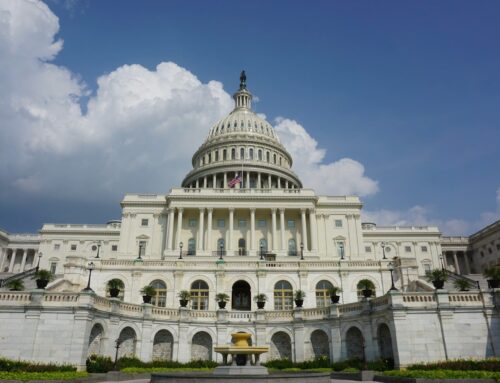The President's plan to privatize a portion of Social Security relies on spending literally trillions of dollars that we do not have and ignores other reform measures that could strengthen the program and help us deal with the torrent of baby-boomers that are about to enter the system.
Whatever happens, the stakes are high. Ask anyone who is retired or is about to retire – Social Security is the only guaranteed source of income for those who are no longer able to work to earn a living. It offers those who are still working a solid foundation for post retirement planning and is a guarantee for every citizen's fiscal future.
To justify their plan, the administration continues to practice fear factor accounting by saying that there is a $10 trillion shortfall in the retirement system. The administration's claims that Social Security is in crisis are based entirely on this supposed deficit. But if you believe their numbers, we also have some swampland in Florida to sell you. The way they get the $10 trillion number is by estimating the solvency of the program forever, instead of the normal 75 years. Over the next 75 years, the shortfall for Social Security is somewhere between $2 and $3.7 trillion. Most taxpayers would be shocked to hear that Social Security will be in the black until 2040 – a long time for a program that is supposedly in 'crisis.'
Contrary to the assertion that the program is in peril, the program has in fact been preserved and improved throughout its 70 year history. Instead of the current risky privatization plan, the system would be better served by commonsense reforms that would include raising the level of annual taxable earnings, raising the retirement age, and subjecting benefits to means testing.
The administration wants workers to divert some of their payroll taxes that currently pay for Social Security into private investment accounts, leaving them and current retirees with smaller benefits. To replace the lost revenue, the government would borrow about $2 trillion over the next 10 years.
According to a study by the Congressional Budget Office, the privatized plan would produce smaller payouts than the current system. Additionally, the two trillion in borrowing could lead to tax increases to pay for interest on a larger national debt.
The upcoming debate on Social Security needs to be as open and transparent as possible. We need an honest accounting of the costs of the current system and the cost of any and all reform packages. Before Congress makes any decisions that would change the current system, they need to be fully apprised of the costs. The President's private accounts plan could lead to the highest deficits that our nation has ever seen.
Strengthening Social Security will require tough choices. Rather than focus on one or two magic bullets, a full spectrum of reform options should be considered. Policymakers and citizens alike need to be wise to the full cost of reform and bear those costs in mind as they enter the debate over fixing Social Security. The current $8 trillion dollar national debt is enough of a burden on future generations. Don't let the administration's fuzzy math convince you that we need to add another $2 trillion to it.
Let's fix social security. Let's focus on real reforms that will soften the baby boomers' blow to the system. The system needs reform, but the current privatization proposals are fiscally irresponsible solutions that use trumped up, fear factor accounting to create the illusion of a crisis where one doesn't exist.











Get Social